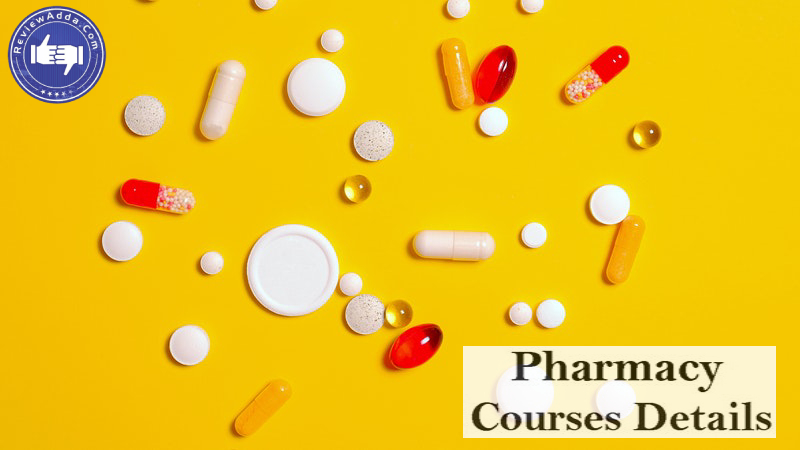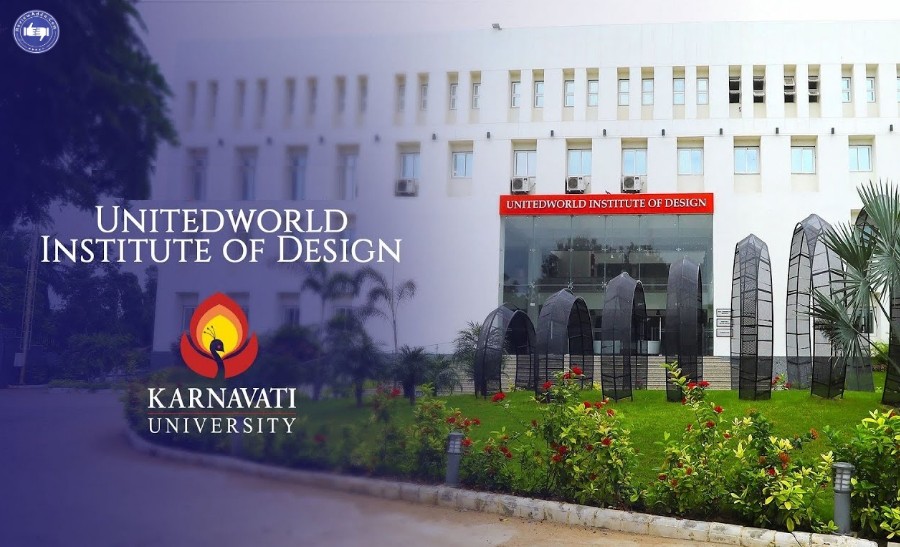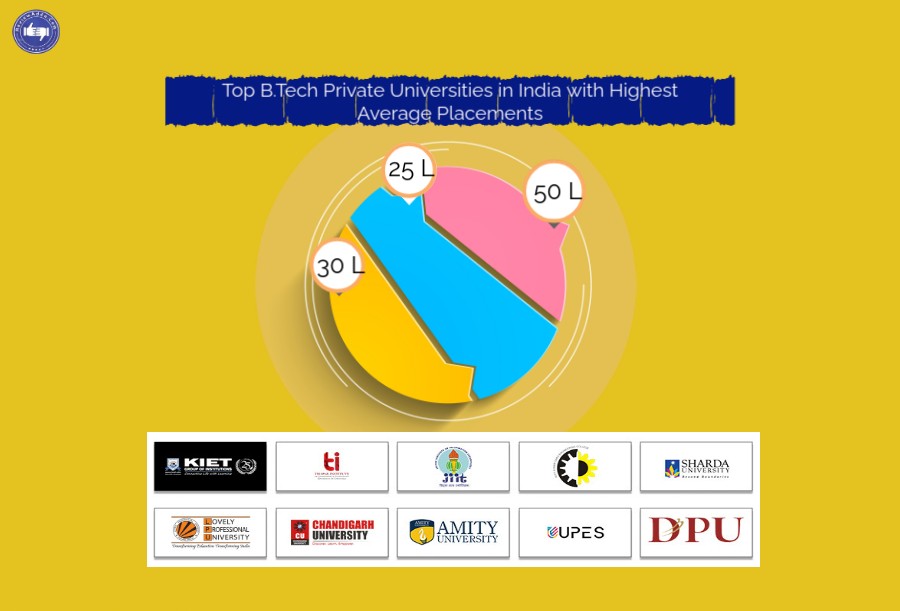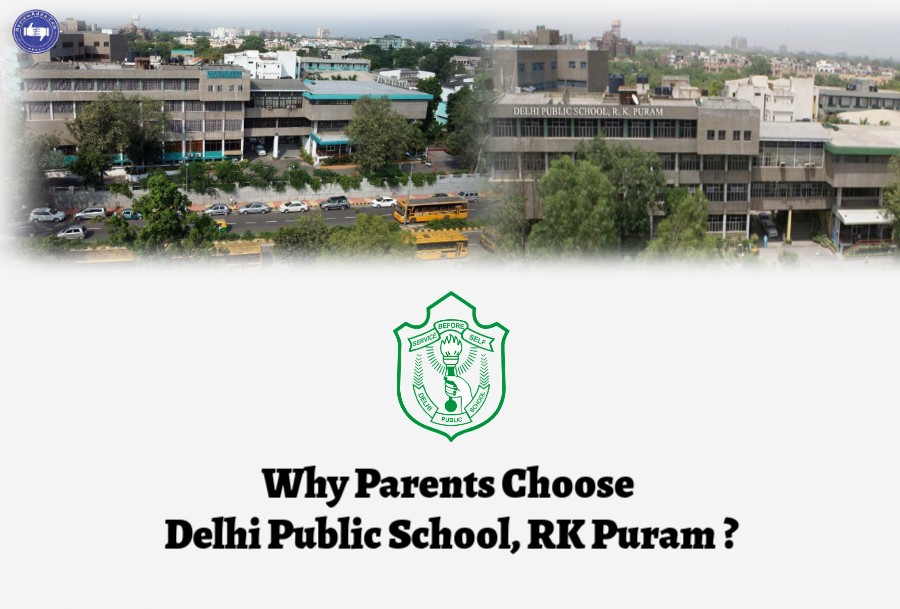Topic We Cover: Career in Pharmacy after 12th
1. What is Pharmacy?
2. Pharmacy Entrance Tests in India
3. Pharmacy Eligibility Criteria
4. Course Curriculum for Pharmacy
5. Career Scope
6. B Pharm colleges in India
7. Conclusion
Do you willing to do your future in the field of pharmacy, then this article will definitely help you in accomplishing your goals. You will get all the valuable information in this article, about careers in pharmacy after the 12th standard. Aspiring students must be given every chance to select and boost up their own career in life. In choosing a career there should not be any parental pressure. For every child parents are the first teachers, therefore a parent required to guide their child about the career choices and opt the one that is best and suitable for their future goals. In making the right decision parents have to guide the child.

Other than becoming a doctor, if you would like to choose some other course in the medical field, then pharmacy is a good option. Pharmacy is a practice of preparing and dispensing of the medicinal drug. There is a lot of scope in pharmacy, but it totally depends on the decision in which field you are interested. Education of Pharmacy differs from one nation to another. In the field of pharmacy you can find many career options such as government agencies, private or public, retail pharmacy, hospital pharmacy, drug inspector, the pharmaceutical industry, etc.
Not only good job opportunities but Pharmacy courses open up, chances to get a decent salary after pursuing pharmacy centric programs from various colleges across the country. B. Pharm is not counted amongst the conventional medical courses but is a good option that can help you secure a good job once you have finished your graduation. The aim of the programs is to educate the students regarding the correct use of medicines and managing them in terms of dosage and guiding the patients.
After completing B. Pharm, a candidate can appear for the GPAT exam which is usually conducted every year in the month of January. You can find out all about pharmacy courses and its scope.
What is Pharmacy?
Pharmacy is not just about a drugstore. The one who studies pharmacy can also opt for R&D of medicine as a career option.
A drug/medicine has to undergo tests and approvals before being prescribed by a doctor. It is tested and approved in a lab, studied for side effects and dosage, only then guidelines for prescription are formed. The medicines then go through clinical trials and only when after studying all the possible effects of the medicine, it is brought in the market. Pharmacists are a part of the entire process. They are also answerable for announcing a new drug/ medicine to various medical practitioners.
The role of pharmacist does not end here. They study and keep track of all medicines and products with market surveys by connecting with a medical practitioner and distributors for any side effects, reactions and allergies, etc. Although, before distribution in a market the medicines are tested in labs because of the complexity and diversity of human beings, different outcomes from the same medicine can occur, therefore, a pharmacy practitioner has to research and develop medicines and prescriptions at multitudes. Pharmacy basically includes everything connected to your wellness right from your lifestyle products, from the food you consume to the cosmetics, health and chemical products that you use.
Looking at the scope of Pharmacy in the healthcare industry, a survey report called ‘Pharmacy at a glance 2015-2017 by International Pharmaceutical Federation (FIP), community pharmacy is the largest contributor with 75.1 percent registered pharmacists employed followed by hospital pharmacy with 13.2 percent. The services provided by pharmacy practitioners include:
Improving the use of medicines: Reviewing medicines, medicines for hypertension management, directly observed treatments, short courses based medicines, medication reconciliation, and new drug development.
Product-focused services: This includes compounding medicines (based on prescriptions by medical practitioners) and assembling expired medicines from a market.
Public health services: This includes promoting health initiatives, vaccinations, health camps and other health-related awareness.
World Health Organization (WHO) in India is aiming to strengthen the pharmaceutical sector, including drug regulations, volume and trade, to facilitate the pharmaceuticals in becoming crucial for India’s growth. The WHO in close association with the Government of India controls the strengths and collaborations for improving the pharmaceutical sector.
For making WHO 2030 Sustainable Development agenda a success, access to medicines is a critical factor. Thus, WHO India’s key strategy is to strengthen the Regulatory system that can help access to quality, safe, effective and inexpensive medical products in an unbiased manner.
Moreover, WHO India is also effectively working on establishing pharmacovigilance systems by integrating public health programs, promoting rational drug use initiatives for a medical product in accordance with National Action Plan on Antimicrobial Resistance as well as strengthening procurement and supply chain management.
Primarily, the pharmacy field can be divided into three disciplines:
- Pharmaceutics
- Medicinal Chemistry & Pharmacognosy
- Pharmacy Practice
Pharmacy Entrance Tests in India
To enroll in any of the pharmacy courses, candidates need to fulfill the eligibility criteria, appear and clear respective admission tests of different pharmacy colleges/institutes. The selection procedure includes academic eligibility, valid scores and rank in entrance tests. Here is a list of Pharmacy entrance exams:
|
Graduate Pharmacy Aptitude Test (GPAT) |
|
|
Other Pharmacy Examinations |
|
|
West Bengal Joint Entrance Exam |
UPSEE |
|
GUJCET |
Maharashtra State Common Entrance Test |
|
Karnataka Common Entrance Test |
TS EAMCET |
|
BITSAT |
AP EAMCET |
|
ITM NEST |
NIPER Joint Entrance Exam |
|
Graduate Pharmacy Aptitude Test |
Dayananda Sagar University Admission Test |
|
CU Common Entrance Test |
BITS Higher Degree Admission Test |
|
West Bengal University of Technology Post Graduate Entrance Test |
Andhra Pradesh Post-Graduate Common Entrance Test |
|
GLA Univ. Entrance Test (GLAET) |
Uttarakhand State Entrance Exam |
|
OJEE Post Graduate Admission Test |
Integral University Entrance Test |
|
Jaipur National University Combined Entrance Test |
Bharati Vidyapeeth Common Entrance Test |
|
Goenka Aptitude Test for Admission |
DHSG University Post Graduate Entrance Test |
|
Himachal Pradesh Common Entrance Test |
Manipal University Online Entrance Test |
Required Skillset for Pharmacy:
While a person pursuing a career in this field will be able to develop core skills and knowledge after pursuing a Pharmacy course and gaining experience with years of practicing, however, they need to have a basic skill set. These include:
|
Communication skills and interpersonal skills |
Medicinal and scientific research skills |
|
Curiosity and persuasive skills |
Business skills like marketing, organizing |
|
Technical skills |
Sharp memory and knowledge |
|
Therapeutic and counseling skills |
Medical writing and ethics |
|
Determinant and consistency skills |
Adaptation ability to dynamic situations |
Pharmacy Eligibility Criteria
Pharmacy is offered at different levels and to get admission in any of the Pharma courses, candidates need to fulfill the required eligibility criteria for the particular course. Check below eligibility criteria for Pharmacy courses:
Diploma in Pharmacy (D. Pharm): Candidates should have completed higher secondary education with science subjects i.e. Physics, Chemistry, Biology, and Mathematics.
Bachelor in Pharmacy (B. Pharm): Candidates must have completed their higher education from the national- or state-level education board. They must have studied Physics, Chemistry, Mathematics or Biology and English subjects. They must complete 17 years of age on December 31 of the year of admission.
Master of Pharmacy (M. Pharm): Candidates who have completed a B. Pharm degree with minimum qualifying marks as required from a pharmacy college as approved by the Pharmacy Council of India (PCI).
For Doctor of Pharmacy (Pharm. D): For a six-year course, candidates must have completed higher education from any state/national education board. They must have studied Physics and Chemistry as compulsory subjects with Mathematics or Biology as additional subjects. They must have completed 17 years of age in the year of admission or Aspirants who are having a diploma in pharmacy are also eligible for Pharm. D course provided, as well as accomplish all other conditions too.
On the other hand, for three-year course candidates, who have completed a Bachelor of Pharmacy course from an institute recognized under the PCI, are eligible for Pharm. D course. They must have completed higher secondary education or equivalent with Physics, Chemistry, and Mathematics or Biology subjects.
 Get Updated Review ( Voice Based Alumni Feeback)
Get Updated Review ( Voice Based Alumni Feeback)
-
 Check Review (Alumni Feedback) - Lovely Professional University - [LPU] – Click Here
Check Review (Alumni Feedback) - Lovely Professional University - [LPU] – Click Here -
 Check Review (Alumni Feedback) - Amity University – Click Here
Check Review (Alumni Feedback) - Amity University – Click Here -
 Check Review (Alumni Feedback) - Pacific University – Click Here
Check Review (Alumni Feedback) - Pacific University – Click Here -
 Check Review (Alumni Feedback) - DIT University Dehradoon – Click Here
Check Review (Alumni Feedback) - DIT University Dehradoon – Click Here -
 Check Review (Alumni Feedback) - Graphic Era University – Click Here
Check Review (Alumni Feedback) - Graphic Era University – Click Here
Course Curriculum for Pharmacy
A student pursuing a Pharmacy course at UG/PG/Diploma/Ph.D. level will be studying the course curriculum including specialized topics, assignments, projects, industrial training, internship, etc. Moreover, the curriculum of Pharmacy courses also includes communication skills development, environmental science studies, ethical practices and regulations of the Pharmacy Council of India. Here we have provided the Pharmacy course curriculum at different levels:
|
Pharmacy Courses |
|
|
Course name |
Syllabus |
|
Diploma in Pharmacy |
Pharmaceutics Pharmaceutical Chemistry Pharmacognosy Biochemistry & Clinical Pathology Human Anatomy & Physiology Human Education and Community Pharmacy Pharmacology and Toxicology Pharmaceutical Jurisprudence Drugs Store and Business Management Hospital and Clinical Pharmacy |
|
Pharm. D |
Human Anatomy and Physiology Pharmaceutics Medicinal Biochemistry Pharmaceutical Organic Chemistry Pharmaceutical Inorganic Chemistry Remedial Mathematics/ Biology Pathophysiology Pharmaceutical Microbiology Pharmacognosy & Phyto-pharmaceuticals Pharmacology Community Pharmacy Pharmaco-therapeutics Pharmaceutical Analysis Pharmaceutical Jurisprudence Medicinal Chemistry Pharmaceutical Formulations Hospital Pharmacy Clinical Pharmacy Biostatistics & Research Methodology Biopharmaceutics & Pharmacokinetics Clinical Toxicology Clinical Research Pharmacoepidemiology and Pharmacoeconomics Clinical Pharmacokinetics & Pharmacotherapeutic Drug Monitoring |
|
B. Pharm |
Human Anatomy and Physiology Pharmaceutical Analysis Pharmaceutics Pharmaceutical Inorganic Chemistry Communication skills Remedial Biology/Remedial Mathematics Pharmaceutical Organic Chemistry Biochemistry Pathophysiology Computer Applications in Pharmacy Environmental sciences Physical Pharmaceutics Pharmaceutical Microbiology Pharmaceutical Engineering Medicinal Chemistry Pharmacology Pharmacognosy and Phytochemistry Industrial Pharmacy Pharmaceutical Jurisprudence Herbal Drug Technology Biopharmaceutics and Pharmacokinetics Pharmaceutical Biotechnology Quality Assurance Herbal Drug Technology Instrumental Methods of Analysis Pharmacy Practice Novel Drug Delivery System Biostatistics and Research Methodology Social and Preventive Pharmacy Pharma Marketing Management Pharmaceutical Regulatory Science Pharmacovigilance Quality Control and Standardization of Herbals Computer-Aided Drug Design Cell and Molecular Biology Cosmetic Science Experimental Pharmacology Advanced Instrumentation Techniques Dietary Supplements and Nutraceuticals |
|
Master of Pharmacy in Pharmaceutics
|
Modern Pharmaceutical Analytical Techniques Drug Delivery System Modern Pharmaceutics Regulatory Affair Molecular Pharmaceutics (NanoTech and Targeted DDS) Advanced Biopharmaceutics & Pharmacokinetics Computer-Aided Drug Delivery System Cosmetic and Cosmeceuticals |
|
MPharm in Industrial Pharmacy |
Modern Pharmaceutical Analytical Techniques Pharmaceutical Formulation Development Novel drug delivery systems Intellectual Property Rights Advanced Biopharmaceutics and Pharmacokinetics Scale-up and Technology Transfer Pharmaceutical Production Technology Entrepreneurship Management |
|
MPharm in Pharmaceutical Chemistry |
Modern Pharmaceutical Analytical Techniques Advanced Organic Chemistry Advanced Medicinal chemistry Chemistry of Natural Products Advanced Spectral Analysis Computer-Aided Drug Design Pharmaceutical Process Chemistry |
|
MPharm in Pharmaceutical Analysis |
Modern Pharmaceutical Analytical Techniques Advanced Pharmaceutical Analysis Pharmaceutical Validation Food Analysis Advanced Instrumental Analysis Modern Bio-Analytical Techniques Quality Control and Quality Assurance Herbal and Cosmetic Analysis |
|
MPharm in Pharmaceutical Quality Assurance |
Analytical Techniques Quality Management System Quality Control and Quality Assurance Product Development and Technology Transfer Hazards and Safety Management Pharmaceutical Validation Audits and Regulatory Compliance Pharmaceutical Manufacturing Technology |
|
MPharm in Regulatory Affairs |
Good Regulatory Practices Documentation and Regulatory Writing Clinical Research Regulations Medical Devices, Regulations, and Legislation for Drugs & Cosmetics, Food & Nutraceuticals, and Biologicals & Herbals, in India and Intellectual Property Rights Regulatory Aspects of Drugs & Cosmetics Regulatory Aspects of Herbal & Biologicals Regulatory Aspects of Medical Devices Regulatory Aspects of Food & Nutraceuticals |
|
MPharm in Pharmaceutical Biotechnology |
Modern Pharmaceutical Analytical Techniques Microbial and Cellular Biology Bioprocess Engineering and Technology Advanced Pharmaceutical Biotechnology Proteins and protein Formulation Immuno-technology Bioinformatics and Computer Technology Biological Evaluation of Drug Therapy |
|
MPharm in Pharmacy Practice |
Clinical Pharmacy Practice Pharmaco-therapeutics Hospital & Community Pharmacy Clinical Research Principles of Quality Use of Medicines Clinical Pharmacokinetics and Therapeutic Drug Monitoring Pharmaco-epidemiology & Pharmaco-economics |
|
MPharm in Pharmacology |
Modern Pharmaceutical Analytical Techniques Advanced Pharmacology Pharmacological and Toxicological Screening Methods Cellular and Molecular Pharmacology Principles of Drug Discovery Experimental Pharmacology practical |
|
MPharm in Pharmacognosy |
Modern Pharmaceutical Analytical Techniques Advanced Pharmacognosy Phytochemistry Industrial Pharmacognostical Technology Medicinal Plant biotechnology Indian system of medicine Herbal cosmetics |
Career Scope
In Pharmacy field career Scope & Job Opportunities are really huge. Due to the enormous number of pharmaceutical companies, the future in the field of pharmacy is blazing and brilliant.
For pharmacists many jobs are available in govt. as well as in private organizations. After accomplishing your studies, you can smoothly find jobs in government departments, hospitals, pharmaceutical industries, colleges and universities, investigation and research institutes, etc.
Pharmacists can practice in hospitals, psychiatric hospitals, community pharmacies, extended care facilities, clinics, and regulatory agencies. Pharmacy graduates on the maximum number are also hired by the Sales & Marketing job sector.
You can also work in retail stores of medicines. You can open a chemist/drug shop and sell medicines as per doctor’s prescription after registering with the state Pharmacy Council.
Job Profile:
- Consultant Pharmacists
- Clinical Pharmacist
- Dispensary Manager
- Dispensary Pharmacist
- Community Pharmacist
- Hospital Pharmacist
- Medicines Safety Manager
- Medicines Management Technician
- Pharmacy Assistant
- Senior Clinical Pharmacists
Salary
The salary package of the candidate totally depends upon the qualification, location, and experience in the required domain. In India, the initial salary of pharmacy graduates ranges from Rs. 15000/- to Rs. 25,000 a month. The avg. salary for a Pharmacist is Rs 201,945 per annum. Those, who have their own pharmacy shop will be able to make more.
In the US, the salary would be in the range of USD $40,000 and USD $120,000 annually after one year of experience.
Pharmacy Top Recruiters
|
Indian Recruiters |
International Recruiters |
|
|
B Pharm colleges in India
Let’s have a look to the list of popular B Pharm colleges in India –
- Madras Medical College, Chennai, Tamil Nadu
- Madurai Medical College, Madurai, Tamil Nadu
- College of Pharma. Sc., Govt. TD Medical College, Alappuzha, Kerala
- College of Pharmaceutical Science, Kozhikode, Kerala
- College of Pharma. Sc., Medical College, Kottayam, Kerala
- College of Pharma. Sc., Medical College, Thiruvananthapuram, Kerala
- Academy of Pharmaceutical Sciences, Pariyaram, Kannur, Kerala
- Department of Pharmaceutical Science, Ettumanoor, Kottayam, Kerala
- Department of Pharmaceutical Science, Puthuppally, Kottayam, Kerala
- Banaras Hindu University, Varanasi, Uttar Pradesh
- IIT BHU, Varanasi, Uttar Pradesh
- PGIMS, Rohtak, Haryana
- PBDS Univ. of Health Sciences, Rohtak, Haryana
- NIPER, Mohali, Punjab
- Central University of Punjab, Bathinda, Punjab
- Guru Nanak Dev University, Amritsar, Punjab
- Jadavpur University, Kolkata, West Bengal
- NIPER, Kolkata, West Bengal
- Institute of Pharmacy, Jalpaiguri, West Bengal
- Maulana AKA Univ. of Tech., Kolkata, West Bengal
- College of Pharmaceutical Sciences, Berhampur, Odisha
- College of Pharmaceutical Sciences, Puri, Odisha
- BITS, Hyderabad, Telangana
- CM College of Pharmacy, Secunderabad, Telangana
- Osmania University, Hyderabad, Telangana
Conclusion
We are tried to include all the essential information and requirement needed for the student who willing to pursue their career in pharmacy. To pursue a career in pharmacy is not as simple as it appears, as it involves lots of responsibilities. Any small mistake may lead to a difficult situation.
To come to an end pharmacy career is the best and unique career one can opt-in his/her life. It is committed to helping others by providing medicinal assistance in a safe and effective way. It includes learning the overall production of medication and understanding their functions and actions on the living organism. It is an excellent career for candidates who are willing to pursue a career in the Healthcare Industry. I hope this article will help each and every one of you in achieving your dream goal.
Best of Luck!!!





.jpg)

